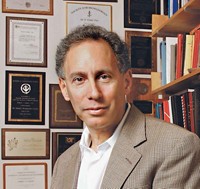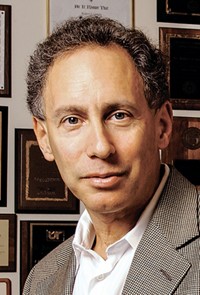Advertisement
Grab your lab coat. Let's get started
Welcome!
Welcome!
Create an account below to get 6 C&EN articles per month, receive newsletters and more - all free.
It seems this is your first time logging in online. Please enter the following information to continue.
As an ACS member you automatically get access to this site. All we need is few more details to create your reading experience.
Not you? Sign in with a different account.
Not you? Sign in with a different account.
ERROR 1
ERROR 1
ERROR 2
ERROR 2
ERROR 2
ERROR 2
ERROR 2
Password and Confirm password must match.
If you have an ACS member number, please enter it here so we can link this account to your membership. (optional)
ERROR 2
ACS values your privacy. By submitting your information, you are gaining access to C&EN and subscribing to our weekly newsletter. We use the information you provide to make your reading experience better, and we will never sell your data to third party members.
People
Robert Langer Wins Queen’s Prize For Engineering
Worth roughly $1.5 million, the prize honors MIT professor’s contributions to humanity
by Linda Wang
February 4, 2015
Robert S. Langer, the David H. Koch Institute Professor at Massachusetts Institute of Technology, one of 11 institute professors at the university, has been awarded the Queen Elizabeth Prize for Engineering. The prize, worth more than $1.5 million, recognizes engineers whose innovations have benefited humanity globally.
Langer is being honored for his “revolutionary advances and leadership in engineering at the interface with chemistry and medicine.” His research has helped create the field of tissue engineering and led to strategies for delivering protein and peptide drugs.
“I’m shocked, very surprised, and very thrilled,” Langer says. “I’m happy to see the fields I’m involved in—chemistry, chemical engineering, and bioengineering—recognized by this wonderful award.”
Langer was the first person to engineer polymers to control the delivery of large-molecular-weight drugs for the treatment of diseases such as cancer and mental illness. He overturned the established thinking that controlled-release drug delivery would not work for large molecules such as peptides or proteins, which are very sensitive to their surroundings.
“What is very rewarding about receiving the largest engineering prize in the world is that when I finished my postdoctoral work, my first nine research grants were turned down and no engineering department would hire me,” he says, adding that he hopes the Queen Elizabeth Prize will continue to inspire young people and women to consider engineering as a profession.
Langer is the recipient of numerous awards, including the 2006 National Medal of Science; the 2011 National Medal of Technology & Innovation; the 2012 Priestley Medal, American Chemical Society’s highest honor; the 2013 Wolf Prize in Chemistry; and the 2014 Kyoto Prize. He is an ACS Fellow.
The queen will present Langer with the award later this year during a ceremony at Buckingham Palace.





Join the conversation
Contact the reporter
Submit a Letter to the Editor for publication
Engage with us on Twitter